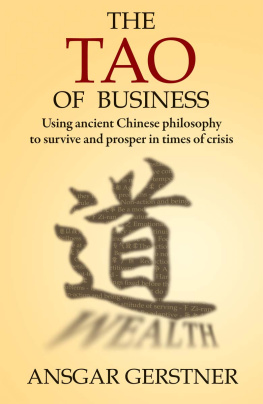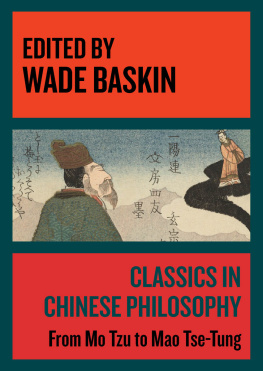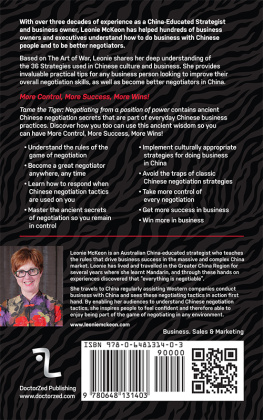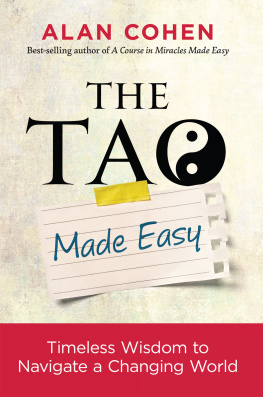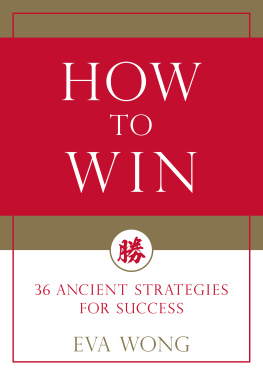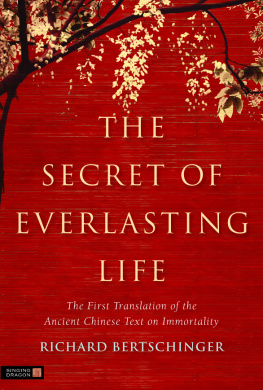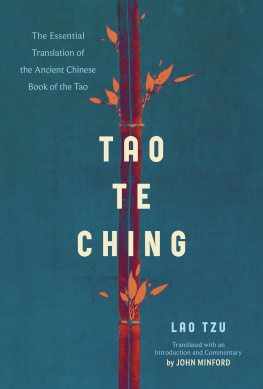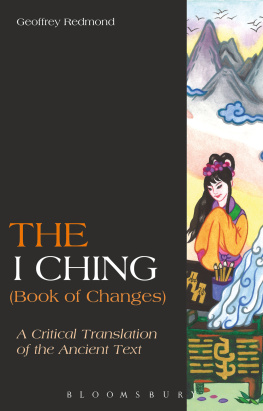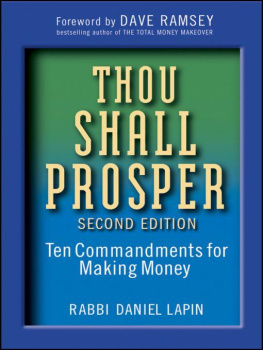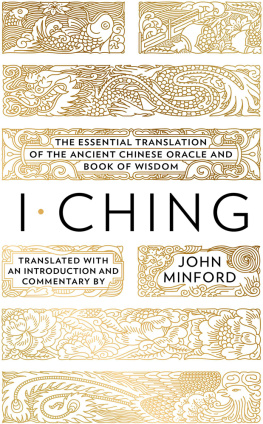The Tao of Business
By Ansgar Gerstner
ISBN-13: 978-988-18154-7-7
2009 China Economic Review Publishing (HK) Limited for Earnshaw Books.
The Tao of Business is published by
China Economic Review Publishing (HK) Limited for Earnshaw Books
1804, 18/F New Victory House,
93-103 Wing Lok Street, Sheung Wan, Hong Kong
First printing August 2009
Second printing January 2010
Thrid printing December 2010
This book has been set in 12pt Book Antiqua.
All rights reserved. No part of this book may be reproduced in material form, by any means, whether graphic, electronic, mechanical or other, including photocopying or information storage, in whole or in part. May not be used to prepare other publications without written permission from the publisher.
To my parents,
Rosemarie and Alex Gerstner
CONTENTS
Index
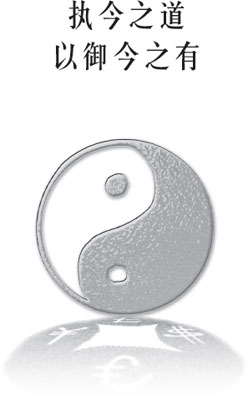
Grasp the Tao of the present to handle the tasks of the present.
Chapter 1
Taoist Champions
Successful management
If you want your business to thrive and make substantial profits on a long-term basis, you need to build it on a truly healthy foundation. Successful management allows you to do exactly that. It generates remarkable revenues in good times, but - at least equally important - it also keeps your business profitable in times of crisis.
The one crisis on everybodys mind, while I have been writing The Tao of Business in 2008 and 2009, is of course the global financial meltdown. It is one of the topics addressed in this book, since it clearly shows that business managers today are far less concerned with the genuine long-term health of a company than they should be. Long-term corporate health does not come from a narrow focus on short-term profits. It needs a broader outlook. Taoism has much to offer in this regard.
Taoism is known for its focus on individual well-being, and especially on the prevention of health problems. But less known is the fact that one of the major sources of Taoist wisdom, the Daodejing, has much to say about how to keep bigger organisms healthy long term and resilient in the face of crisis. The bigger organism the Daodejing is concerned with is the political state, but its lessons apply equally to modern business. In the book, I will show that the strategic advice offered by the Daodejing for more than 2,300 years can help you to put your business on a healthy and sound basis.
The simple word crisis can denote many different things. It does not exclusively refer to a large-scale global economic downturn. Your company, used to being the unchallenged market leader, might suddenly see itself threatened by the appearance of a strong competitor. Or maybe your company is confronted with new legal regulations, dramatic shifts in the market, lower demand, or a fierce price war started by one of your competitors.
There are all kinds of crises. Some can bring you to your knees and leave your business fighting for mere survival. But others might provide your company with unique opportunities to improve its position.
Take the market leaders in different industries and among diverse types and sizes of companies and look at their secrets of success, you will find certain elements repeated again and again. These businesses are typically strong in the following ways:
- They proactively seek out opportunities
- They work to anticipate and prevent problems.
- They are responsive to changes in their markets.
- They are far-sighted in reacting to socio-political developments and trends.
- They are highly flexible in addressing tasks.
These so-called secrets are well known and a huge amount has been written on them. What, then, can an ancient Chinese philosophy like Taoism offer to modern business besides these established truths?
When you look at the corporate culture and strategy of companies in a wide range of industries, you will find that often things are done in a piecemeal fashion. But running a long-term profitable business is like first-rate cooking. The real secret does not lie in the individual ingredients, although they have to be high class too. It rather is the perfect combination, sequence and timing and a broader perspective on how things fit into context that decide whether the outcome is average or first class.
Taoism is not about taking a piece here, taking a piece there and then simply putting them all in one pot. What Taoism is above all else is the glue that holds things together, a broad, coherent and holistic strategic perspective.
TheDaodejingand theZhuangzi
Taoism is one of Asias major worldviews, and Chinas only indigenous faith. It has had enormous influence on the cultures of East Asia over the past 2,000 years, and its impact is increasingly felt beyond.
It is an approach to living rather than a systematic explanation of the origins of being. Taoism emphasizes compassion, spontaneity, and respect for nature. It calls for balance, and a oneness with life. It proposes that we should go with the natural flow of things, rather than resisting it.
The central text of Taoism is the Daodejing (Tao Te Ching), and legend holds that it was written by a person named Laozi (Lao Tse), supposedly an older contemporary of Confucius (551-479 B.C.). This book, a short five thousand characters in length, contains highly concentrated advice on how to live life, and particularly how to be a good leader. It appears to have been written primarily as a how-to manual for a ruler, and it is this aspect that makes it so relevant to the real rulers of the 21st century - the business elite.
As a modern business person, you would probably not expect a more than 2,000 year old book to address a subject that you wrestle with day after dayefficiency. But this is a recurrent theme in the Daodejing: how to achieve optimum results with minimum effort. The Daodejing offers some unexpected answers, at least for the Western mind.
Efficiencys chief ingredients, responsiveness and agility, also feature prominently in the Daodejing, being one of the reasons why this book and its lessons are so important in Chinese medicine, military strategic thought and the martial arts.
Taoism also draws inspiration from another philosopher who is supposed to have lived one or two centuries after the alleged author of the Daodejing, leaving to us a book known by his name, Zhuangzi.
Both, the Daodejing and the Zhuangzi give advice on how to live life properly. But unlike the Daodejing, the Zhuangzi does so through story-telling. There are stories like the famous butterfly dream which question black or white assumptions about reality, stories about making use of the useless, or about the relativity of knowledge.
Many of the stories describe people who have arrived at exceptional levels in their respective fields. The book makes it clear, however, that to reach such levels of excellence, you need to possess more than mere professional skills. You need a philosophy, a strategy, a vision that gets you there.
The Daodejing and the Zhuangzi are the twin wells of wisdom from which all of Taoism springs, and they can provide the business person of today with a fresh outlook on corporate philosophy and strategy.
Taoist champions
Early Taoist writings contain stories of people living by drinking dew, climbing on clouds and riding flying dragons. These stories appear to us to be utterly fanciful. But they teach us an important lesson; not about how to attain super-natural powers, but about being open to realities beyond our immediate vision.
Next page
